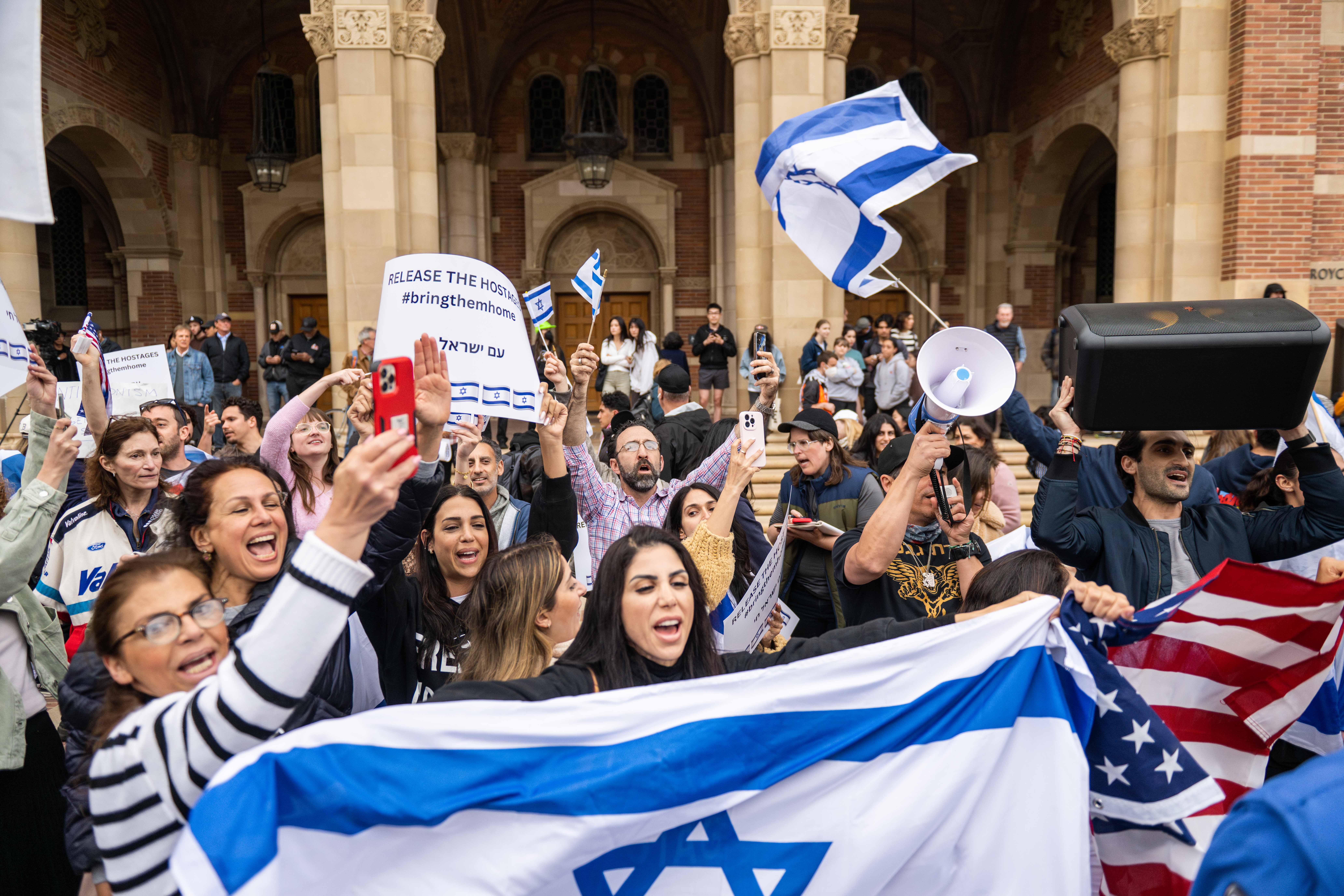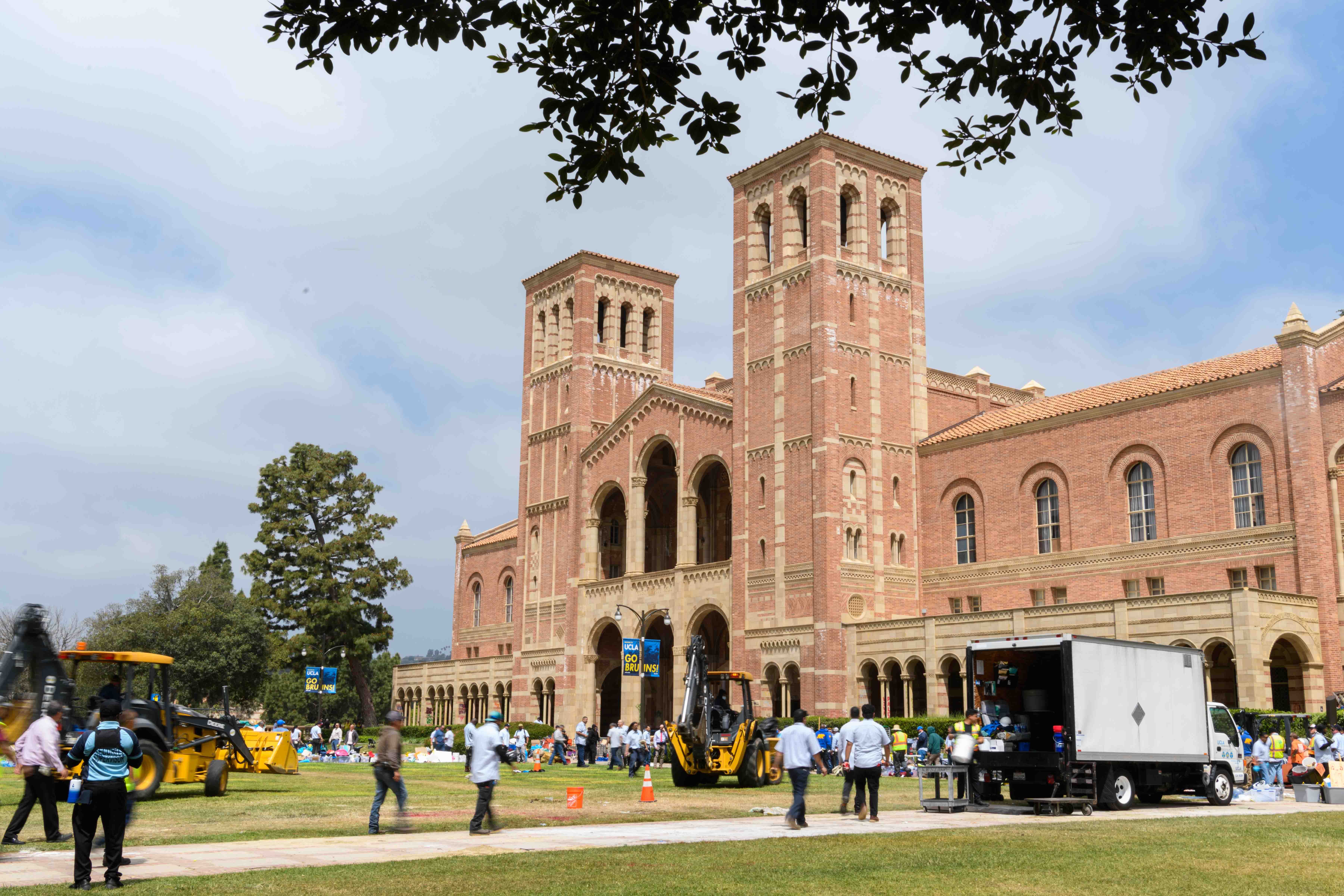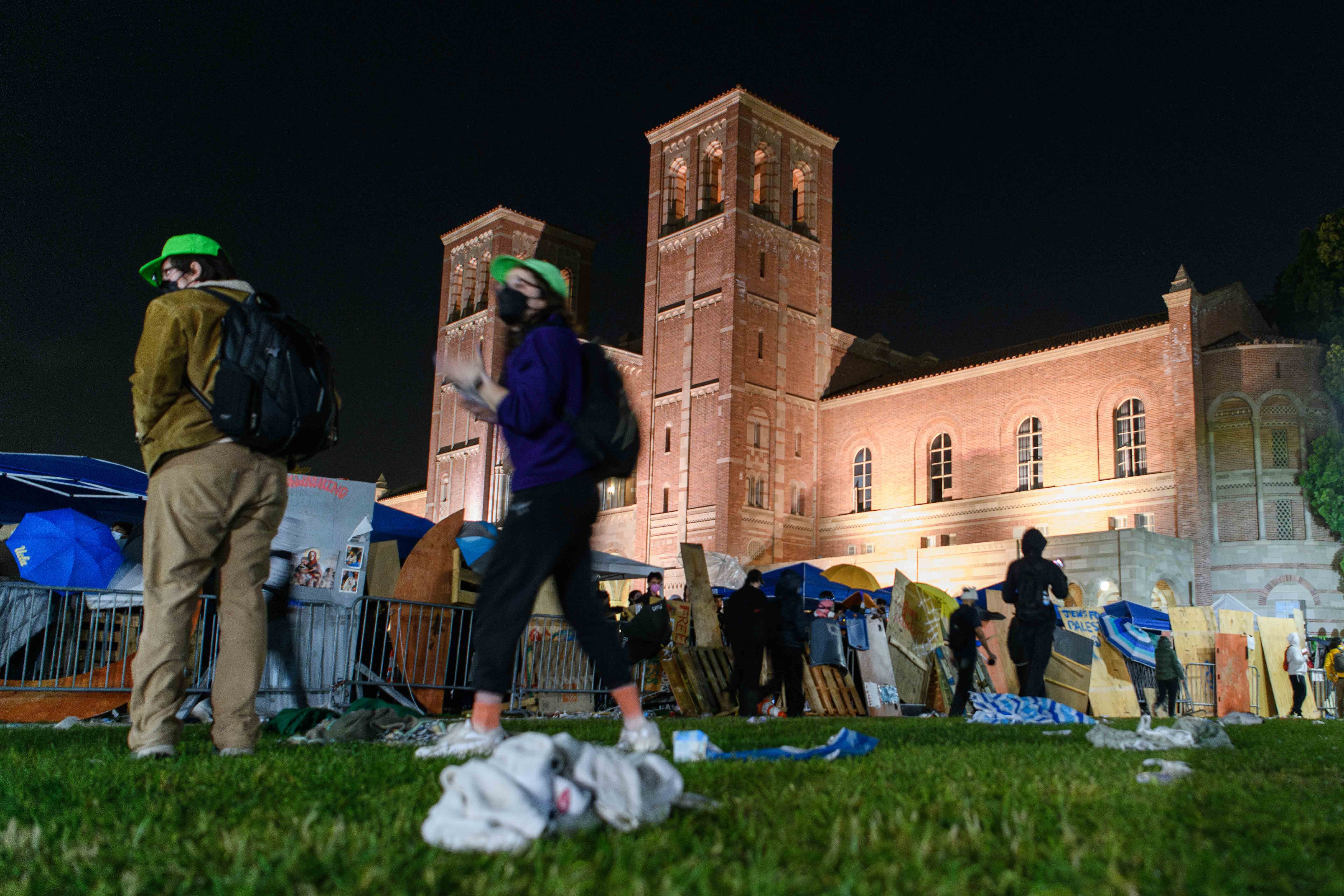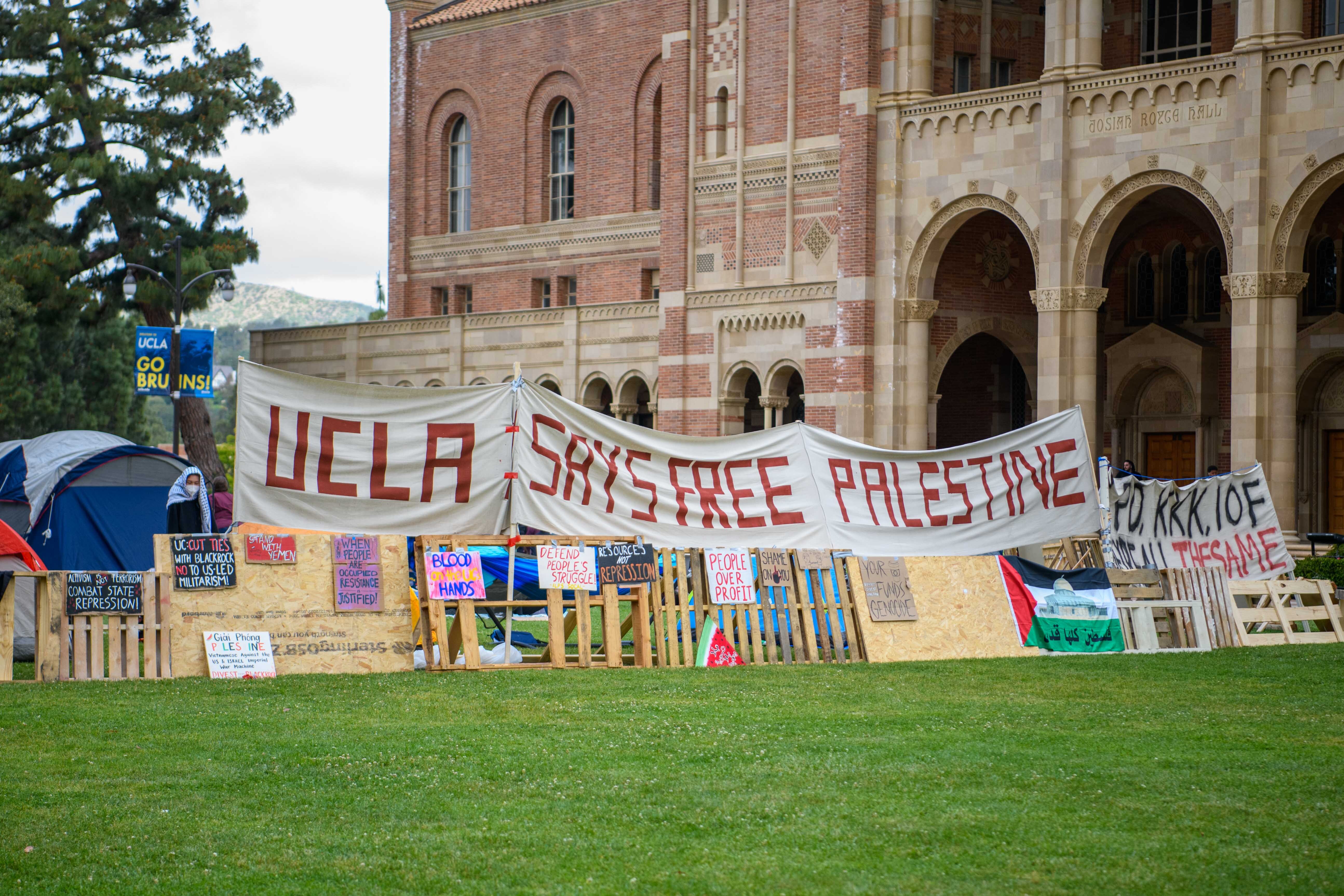Administrative responses to pro-Palestine efforts vary across university campuses
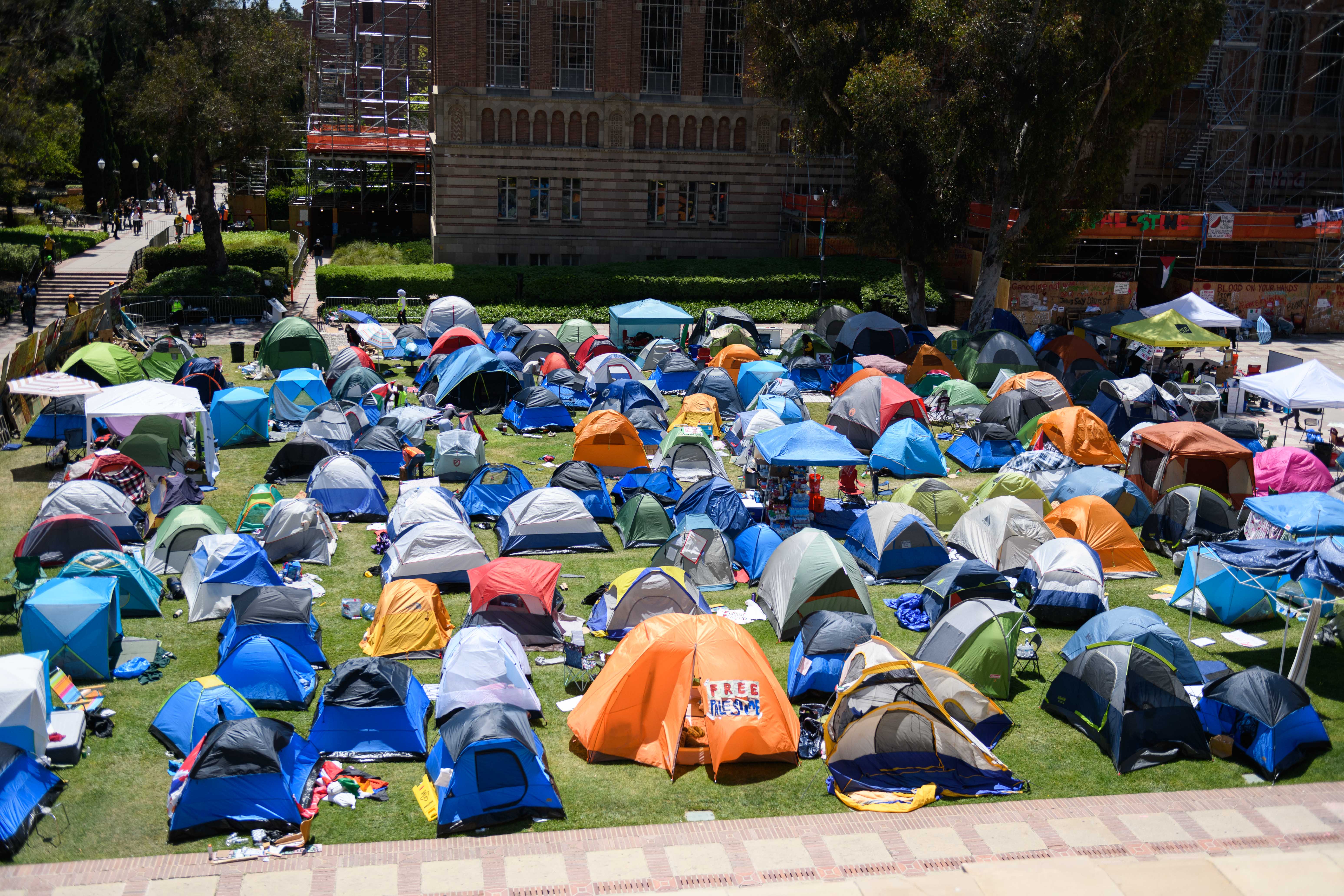
The Palestine solidarity encampment at UCLA is pictured. (Karla Cardenas-Felipe/Daily Bruin)
By Tiffany Xiao
May 5, 2024 5:32 p.m.
This post was updated May 5 at 11:15 p.m.
More than 300 pro-Palestine protests have erupted across American college campuses since early April, resulting in at least 2,000 arrests or detainments nationwide.
Although these protests are all driven by solidarity with Palestine, they have resulted in differing administrative responses, levels of law enforcement involvement and student reactions.
At UCLA, police forces used flash bang devices, batons and less-than-lethal weapons to dismantle the Palestine solidarity encampment – which had been in place since April 25 – and arrest over 200 protesters.
The encampment, organized by the UC Divest Coalition and Students for Justice in Palestine at UCLA, called for divestment from organizations and businesses associated with the Israeli military and an immediate ceasefire in the Gaza Strip, among other demands.
A small number of schools, including Occidental College and UC Riverside, have noticed positive administrative responses to their encampments.
Occidental disclosed the school’s investments hours after its campus encampment began, according to a statement by Students for Justice in Palestine at Occidental College. A divestment proposal was submitted April 25, said Matthew Vickers, a member of SJP at Occidental’s executive board and a third-year diplomacy and world affairs student.
The encampment at Occidental – led by Occidental SJP and Occidental Jewish Voice for Peace – advocated for divestment from Lockheed Martin, Elbit Systems, Boeing and Caterpillar: companies they say have a history of human rights violations and are financially complicit in Israel’s occupation of the Gaza Strip, Vickers said. The list of companies targeted by Occidental SJP is smaller than at other universities, Vickers said, because they felt divesting from those companies would be more achievable than full divestment.
“We feel that once this victory is established, it will start a trend for an alternative means to divestment,” Vickers said. “Ideally, we would achieve full divestment, but we think this would be the most pragmatic means to pursue divestment.”
Other student activists have experienced more negative administrative responses to protest efforts.
There is significant uncertainty and distrust in the campus atmosphere at Barnard College and Columbia University, said Marie Adele Grosso, an undergraduate student at Barnard College. Multiple attempts to set up encampments at Columbia have led to arrests.
“Our university doesn’t care about people dying across the world, but they don’t even care about our safety here,” Grosso said.
Concerns around security have also been reflected at UCLA, where counter-protesters attacked the Palestine solidarity encampment with fireworks and tear gas Tuesday night into Wednesday morning. A UC Divest spokesperson said in a press conference Wednesday that physical violence resulting from the altercations against the encampment left 25 pro-Palestine protesters hospitalized overnight.
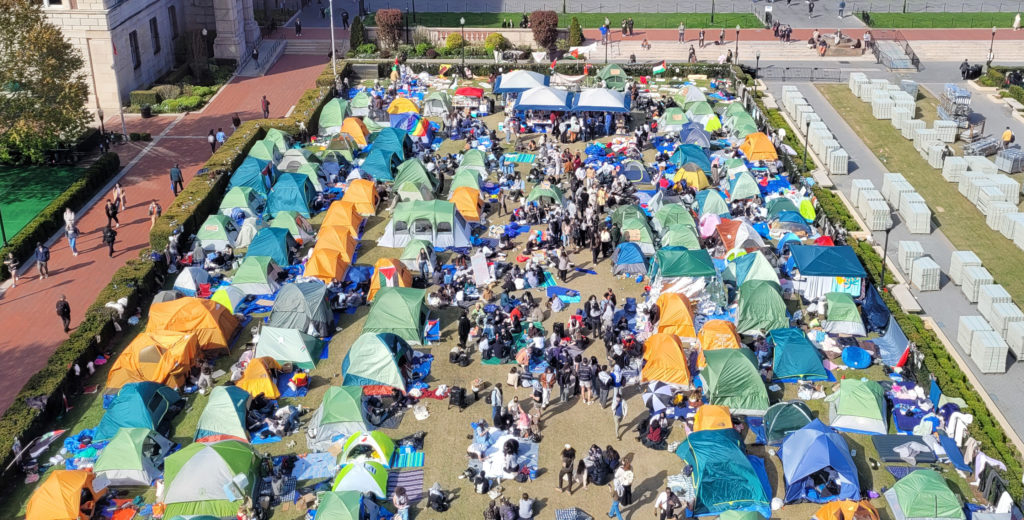
Grosso, who was arrested due to her involvement in the initial encampment at Columbia, said health care has been restricted for some students that were evicted from campus housing for protesting, and students are struggling to access their medication. She added that the university had tried to use returned access to campus housing as leverage in negotiations with students to end the encampment.
Bianca Waked, a doctoral student in philosophy at Cornell University, said she was among the first four students suspended at Cornell for participating in pro-Palestine protests after serving on a negotiating committee for the Coalition for Mutual Liberation at Cornell. They added that the negotiating committee was initially designed to be a lower-risk way of expressing opinions than participating in Cornell’s encampment, but instead turned them into a visible target for the university administration.
Waked, who is an international student from Quebec, Canada, said the suspension puts her visa status in jeopardy.
Waked said Cornell used their suspension as a bargaining tool for the Graduate Student Union. According to an email obtained by the Cornell Sun, the university’s provost said suspensions of Waked and other organizers would be lifted if the camp were ended or moved.
“It was especially egregious and morally repugnant, honestly, because what he (Cornell’s provost Michael I. Kotlikoff) effectively did was turn our academic well-being – in my case, my visa status to stay in the country – into a bargaining chip, a political bargaining chip, to shut down an act of peaceful civil disobedience,” Waked said.
Banafsheh, a third-year English student at Cornell who did not provide her last name, said the administration’s targeted response to people who spoke up showed that her university was lashing out blindly and unfairly.
At Cornell, law enforcement surveillance of the encampments has been a key factor contributing to protesters’ uneasiness. Waked said in one case, people took videos of two police officers who stood directly behind people praying during the Jum’ah prayer April 26.
“They walked over as people started praying and just decided to stand there,” she said. “We continue to see, yet again, this kind of intimidation and surveillance of Arab and Muslim students on campus.”
Despite frustrations with administration and law enforcement responses, students on various campuses have found support from faculty and local organizations.
Vickers said the Occidental chapter of Faculty for Justice in Palestine was formed the same day the Palestine solidarity encampment was established on campus. He added that prior to the official formation of the faculty group, faculty at his university had released two statements in support of Palestine.
More than 250 UCLA faculty members signed an open letter in December imploring university administration to protect pro-Palestine students and demonstrations on campus.
Faculty at Barnard also participated in a large walkout demonstration, Grosso said.
“A lot of the faculty at Columbia have also been extremely supportive,” she said. “I’ve had many professors reach out to me to check in or tell me they’re proud of me.”
Cornell’s faculty have also assisted in organizing events affiliated with the pro-Palestine protests on campus, helping to fundraise for dinner, picking up food for the encampment and participating in negotiation committees alongside staff and students, Waked said. Additionally, more than 300 Cornell professors petitioned for the lifting of four students’ suspensions – including Waked’s – in an open letter to university administration April 30.
Many encampments across the country also emphasized cultural and educational activities as part of their protests.
Vickers said events at Occidental’s encampment – including zine-making, cultural dance and a choir – are aimed to educate students, faculty and staff about what is happening in Palestine.
“We brought on community organizations not only to establish ties in Northeast LA and LA more generally but to show the intersections between Palestine, Los Angeles and the world more generally,” he said.
Banafsheh said Cornell faculty also conducted teach-ins just outside of the encampment. The cultural events at the encampment emphasized community and solidarity between different groups of people, she added.
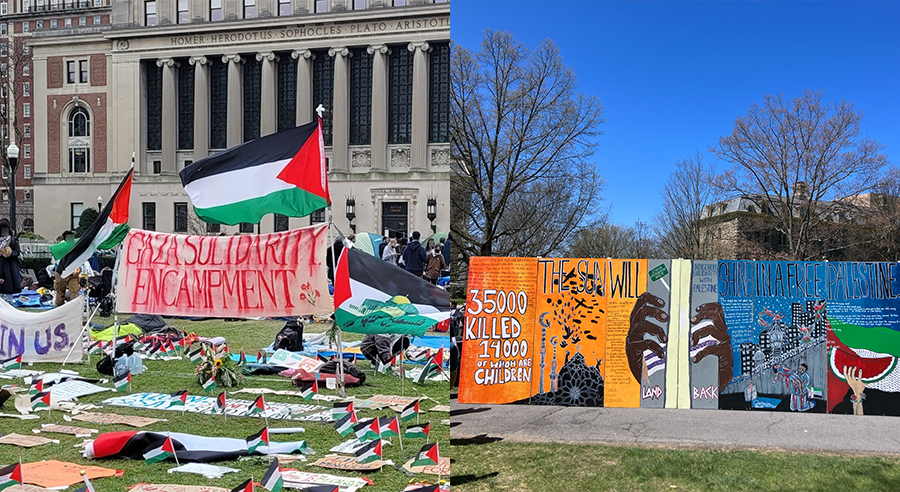
Lilah, an organizer with the UCLA Palestine solidarity encampment who did not provide their last name, said cultural programming in UCLA’s encampment was geared toward learning from each other and learning about historical struggles around the world on California campuses.
“I want to be clear that the genocide in Gaza is not only a physical genocide, that is also a cultural genocide,” they said. “Students are unable to gather like this in Gaza, and that’s what all of this cultural program grounds us in.”
Involvement in the pro-Palestine encampments and affiliated events across America’s colleges has been inspiring, Banafsheh said. However, as student demonstrations continue across the country, many pro-Palestine protesters urge people to remain focused on the movement’s purpose.
“While this is such an important story, in terms of academic freedom, freedom of speech, all of that, it is also incredibly important to remember to keep the focus on Gaza and on Palestine,” Grosso said. “Keep watching what’s happening (in the Gaza Strip), bearing witness and doing everything we can to intervene.”
Contributing reports by Catherine Hamilton, News editor.



